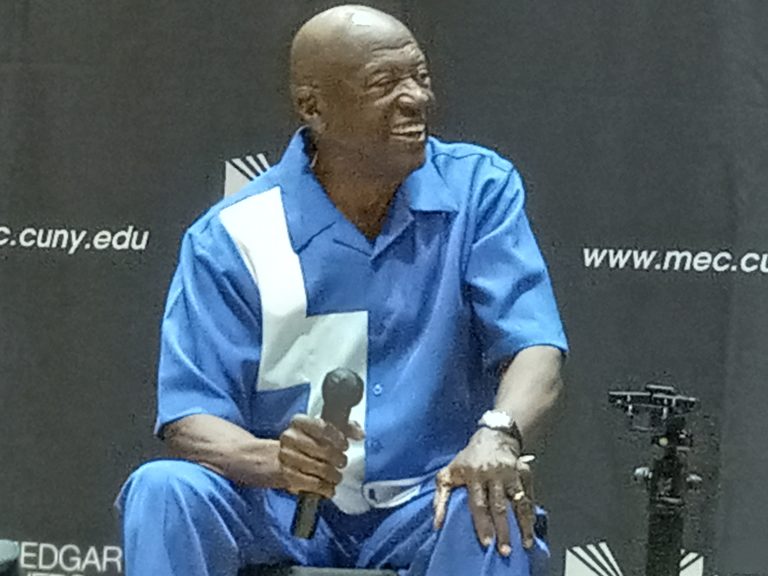Democracy For the People Tour Stops Off at Medgar Evers College
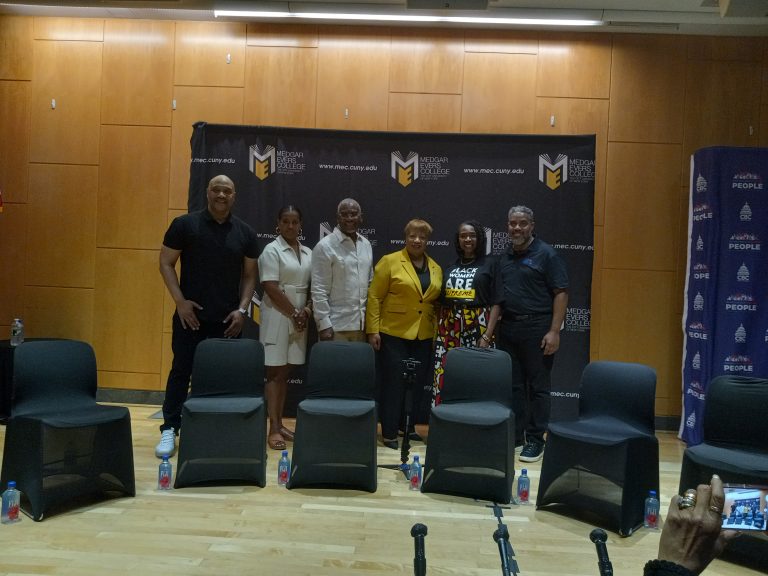
Congressional Black Caucus hosts two-day voting rights summit
With the deep-seated threats to voting rights seemingly popping up from one day to the next, the Congressional Black Caucus Institute (CBCI) embarked on a 12-city “Democracy For the People Tour” as part of its Summer of Action. Medgar Evers College was the seventh stop and host of two days of events on July 24 and July 25. The first day consisted of a “Mobilizer Training” session to educate participants on effective community mobilization, grassroots efforts, and impactful communication techniques to drive social change on the first day. The second day featured a community town hall led by members of the Congressional Black Caucus. The President of Medgar Evers College, Dr. Patricia Ramsey, welcomed the audience of civic leaders and advocacy groups, and Brooklyn NAACP President L. Joy Williams served as the panel moderator. Congressional panel participants included Congressman Steven Horsford (D-Nevada and CBC Chair), Congresswoman Yvette Clark (D-New York and CBC 1st Vice Chair), Congressman André Carson (D-Indiana), Congresswoman Jahana Hayes (D-Connecticut) and Congresswoman Terri Sewell (D-Alabama). Former Congressman Edolphus “Ed” Towns (D-New York) was invited to address the audience.
Dr. Ramsey welcomed the CBCI with an opening statement about the school’s origins that tied into the very fights for equity at the center of the day’s topics.
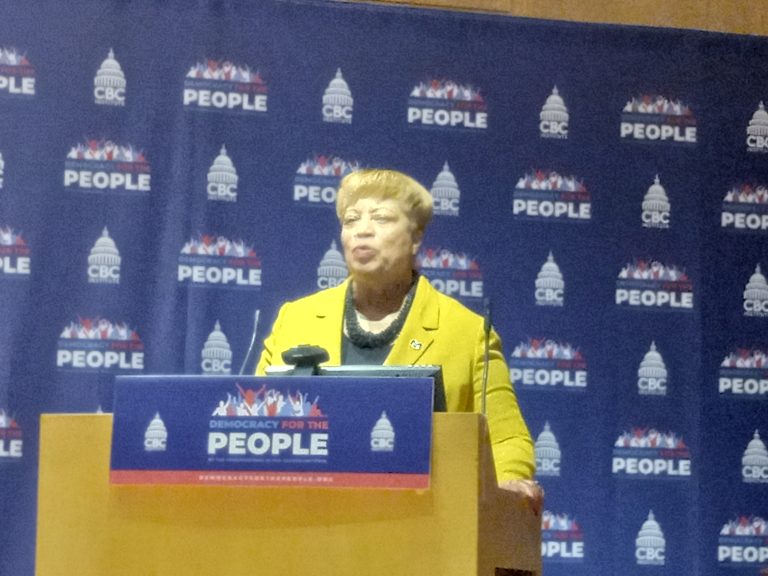
“This college was birthed because the Black community felt there needed to be a four-year institution in this community,” Dr. Ramsey explained. “They started this advocacy in 1963 and we had Congresswoman Shirley Chisholm as one of the people who was in the advocacy group. And people like Dr. Al Vann, who passed away last year, and they were very steadfast in ensuring that there would be a four-year college in Central Brooklyn. The powers-that-be didn’t want any kind of college here because in the archives it’s written that the person in charge of education at the time said they were not putting a college in that ghetto. The people in this community and the ones in this institution went very much through the same thing as those people in the South.”
For Representative Clarke, complacency following the acquisition of rights that were hard-fought over is how disenfranchisement has been allowed to return in a modern-day era where seemingly unassailable legislation like the 1965 Voting Rights Act and Roe v. Wade are being dismantled.
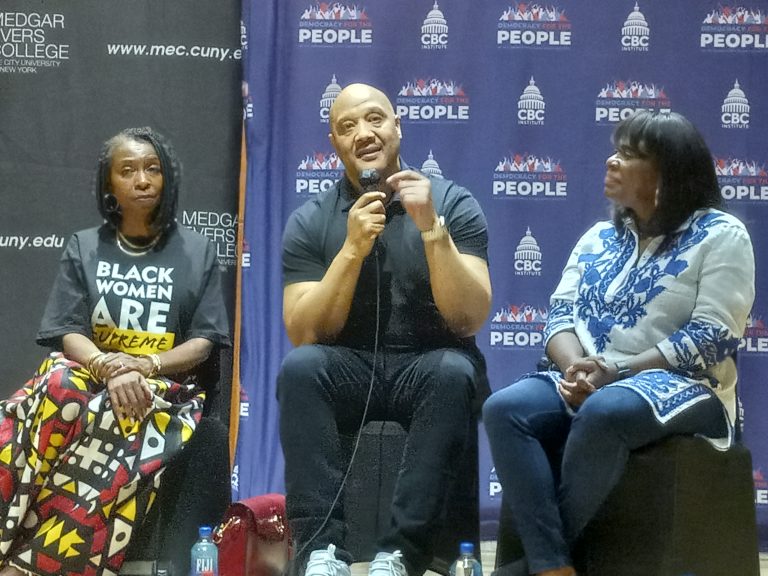
“We recognize that there was a whole host of gains that we made during the Civil Rights Movement,” she said. “People who were born during and after the Civil Rights Movement took a lot for granted. Fast forward—50 years later, we’re fighting the same battles again. If you’re disenfranchised, democracy don’t matter because you’re not living under a democracy. If you don’t have a vote, you don’t have a voice. As long as people profit from our misery, we will be miserable.”
The importance of being at the polls during elections large and small was a sentiment echoed by Sewell.“Know the connection between the right to vote and all our other rights—it all derives from the right to vote,” she said. “And I’m here to tell you that not only is it under attack now, but it was under attack then. Our forefathers and foremothers were tacticians. They didn’t just happen upon Selma, AL. They didn’t just happen upon Birmingham, AL. We have to take a page from their book and realize that the fight and struggle continues. Every generation must hold onto the progress that the previous generation had because guess what? It can vanish. Old battles can become new again.”
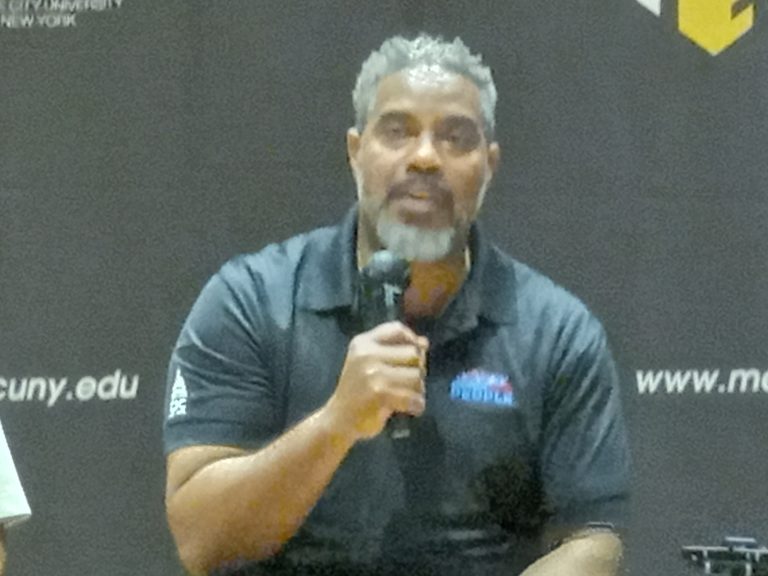
Horsford pointed out how calls to action are the key to staving off the erosion of democracy, particularly when institutions like schools and the courts are under attack.
“We thought it would be better to get out of D.C., stop putting all the energy toward the far right and focus on the people and take the message, the mobilization and the action directly to them,” he said. “Not only are we doing this town hall, but we conducted an organizing training session here as well because we believe it’s more than just having a conversation. We actually have to build a movement in this time.”
Former Congressional Black Caucus Chairman Ed Towns was a special guest who lauded the work his successors have been doing in the fight for voting rights.
“When I went to Congress, there was 18 of us and now, there are 58,” he pointed out. “I’m so excited about the possibilities. And I want to tell you that when something is in your way, that means you’re on your way. If you’re not going anywhere, nothing will ever be in your way, so keep that in mind.”
